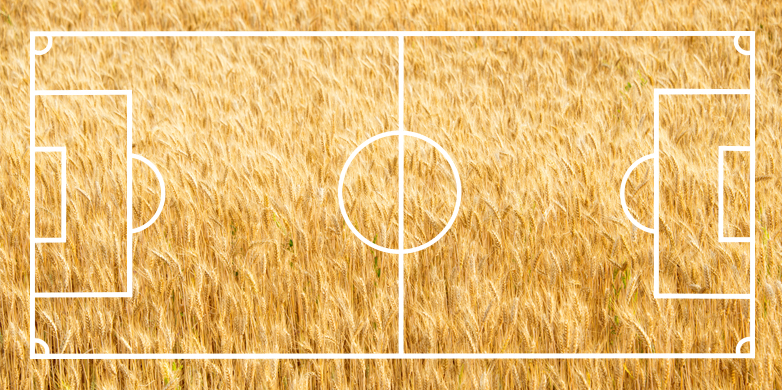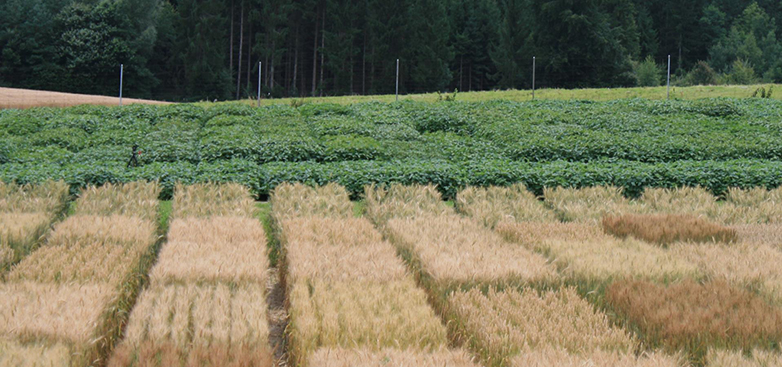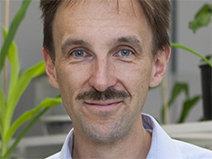Bread and games: Agricultural sciences at ETH
Agricultural sciences? Can you still study that? And what is it good for? These are questions that teachers and students in this subject are always asked. Yet these degree programmes are now more relevant than ever – not only due to the new BSc and MSc regulations that will come into effect in autumn semester 2016.
There are aspects of life that are not exactly associated with university study. Eating and drinking, for instance, or football. Similarly, we often take it for granted that the land will be farmed and food produced. And of course we know how to do it best, just as everyone knows how to position and train the national football team.
The apparent triviality of the everyday
So much for theory. In practice, things are a bit more complicated. For instance, wheat grows only when it receives the right nutrients at the right time. Cows produce milk only if they continue to be inseminated. In Europe, farmers are able to maintain their livelihoods only if state regulations ensure competitive prices. Close consideration of these and other related issues reveals that their natural and social science bases are anything but trivial. Significant relationships need to be more thoroughly researched; much is evolving and therefore requires constant reassessment.
No magic formula for environmental systems
The production of food is a complex matter. Any form of production, harvesting and even gathering has side-effects that we often become aware of only years or generations later. The population density of our planet is now so great that a complete ‘back to nature’ is out of the question. Even organic farming requires fertiliser; even vegan lifestyles are based around high-yield crops. There is no easy formula to help us decide what to produce, where to produce it and how intensively to cultivate it – or how to either nurture the organisms and mechanisms that naturally support food production, or conversely keep at bay the myriad of fungi, bacteria and viruses that damage our favourite products.
What we have are various different approaches to these questions, and we know that each approach has its own particular drawbacks. Genetic engineering: risky. Organic farming: expensive. More diversity in our agricultural system: time-consuming. What should we do then? Switch off? Fine for all armchair football managers, but not an option in real life. Turning our backs here would be to leave the field to those seeking to enforce their particular vested interests in a highly complex system. In the long term, that’s not a recipe for success. Football is a team sport and food production is a globally interconnected business that functions via process chains and networks. This is why we must show our students the diversity of existing production processes and enable them to identify the advantages and disadvantages of the various approaches.
ETH’s role in Swiss and global food production
As I see it, a university charged with helping society develop technical solutions and values for a sustainable future has to ask itself how humanity can feed itself in future. Hunger, malnutrition, environmental degradation and climate change are regular topics in this blog. A serious and multifaceted training in agricultural and food sciences at ETH enables students to tackle some of the key questions of our time. This is why students of agricultural sciences need an excellent grounding in the natural and social sciences. But they also need more than this: they need to test their knowledge in real issues. Field trips and internships are thus an indispensable part of such degree programmes. These include placements in laboratories, farms, government departments and companies in the agri-food industry at home and abroad. In higher education, this is called problem-based learning; among footballers, it’s known as match practice.
New regulations for the BSc and MSc degrees
This is why new regulations for the BSc and MSc degrees in agricultural sciences will come into force in the autumn semester 2016. These have been developed over the past two years using a participatory approach [1]. In future, our students will get more match practice at national and international level. This means some changes to the lecture courses, and in particular longer and better prepared practical placements, where they will improve their skills through case studies and project work. They can then become leading players – professionals who will ensure that production and consumption are designed in the most sustainable way; that our daily bread is inexpensive and here not only today, but also in the future and across the world.
Further information
[1] Walter et al. 2015: Kurzbericht in Agrarforschung Schweiz: external page Die ETH Zürich reformiert das Studium der Agrarwissenschaften



Comments
No comments yet